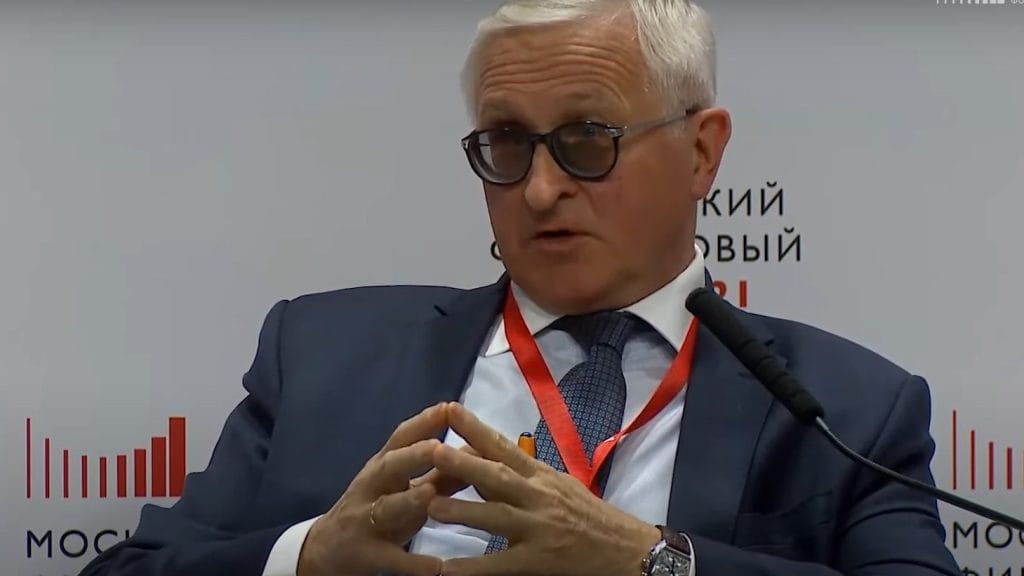Leading Russian businessman demands that the government permit the use of all “digital currencies” in international trade.

The head of one of the largest business associations in Russia has urged the government to approve the use of cryptocurrencies and stablecoins in international trade.
The Russian Union of Industrialists and Entrepreneurs (RSPP) President, Alexander Shokhin, made the remarks, according to the state-run news agency TASS.
On September 7, Shokhin was giving a speech outside the Eastern Economic Forum in Vladivostok.
Crypto and Stablecoins – Time to ‘Remove Barriers’
Shokhin stated that Russian companies “propose removing legislative barriers” in order to “solve” ongoing “problems with payments in foreign trade.”
In cross-border trade, he said, businesses should be given “a real opportunity to use any reliable digital currencies.”
Sanctions imposed by the US, EU, and UK are making it difficult for Russian companies to conduct business with foreign partners.

Tokens like Bitcoin (BTC) are being used by some national businesses in cross-border transactions. A new law went into effect earlier this month that permits businesses to accept payments with coins in a “experimental” sandbox run by the Russian Central Bank.
However, it seems that a lot of businesses feel that this is overly restrictive and that they should be free to use any payment methods they choose for international trade.
“It is important that businesses have a real opportunity to use any sort of reliable digital currency […] in foreign economic activity. That includes cryptocurrencies and stablecoins, which use blockchain and cryptography technology.”Alexander Shokhin, President of the Russian Union of Industrialists and Entrepreneurs.
According to the business leader, businesses also required access to Russian-made SWIFT banking system substitutes.
The head of RSPP went on to say that his group was “actively developing cooperation” with the Russian Foreign Affairs Ministry.
Additionally, he made a suggestion that, in the wake of the sanctions, governments everywhere might try to loosen regulations pertaining to businesses looking to transact using blockchain-powered assets.
Exclusive: Russia's Sberbank says India business booming despite Western sanctions https://t.co/MAfFzFlbHq pic.twitter.com/FEmrver7B9
— Reuters (@Reuters) September 3, 2024
Global Trade Changes Coming?
Shokhin highlighted recent recommendations from the Business 20 (B20), a group of 900 international business leaders, to the leaders of the G20.
He said that this year, the B20 had urged political leaders to reevaluate the terms under which it permits businesses to transact with one another.
In advance of the G20’s impending summit in São Paulo, Brazil, on October 24 and 25, the B20 has sent its requests to the latter.
Russian central bank set to hike key rate by another 100 bps: Reuters poll https://t.co/T4uzKMqRYk pic.twitter.com/5ENoL5IHMg
— Reuters (@Reuters) September 2, 2024
Although the B20 made no direct mention of crypto or stablecoins in its public recommendations, it called on leaders to “promote sustainable and resilient trade and investment.” The B20 said leaders should:
“Initiate a review of restrictive unilateral trade policies by G20 countries over the past three years.”
Shokhin came to the conclusion that in order to encourage trade, particularly cryptocurrency-powered business, Moscow must “eliminate existing barriers in legislation.”
Improvements, according to him, were “primarily” needed in the areas of “taxation and currency control.”
Crypto: Taking Center Stage
This year at the Eastern Economic Forum, issues pertaining to cryptocurrencies have taken center stage. The organizers have devoted multiple sessions to bitcoin mining and other cryptocurrencies.
One of President Vladimir Putin’s remarks at the forum also touched on cryptocurrency mining.
And a Russian government ministry said it wants to allow miners access to surplus electrical power.















1 Comment